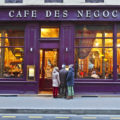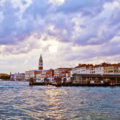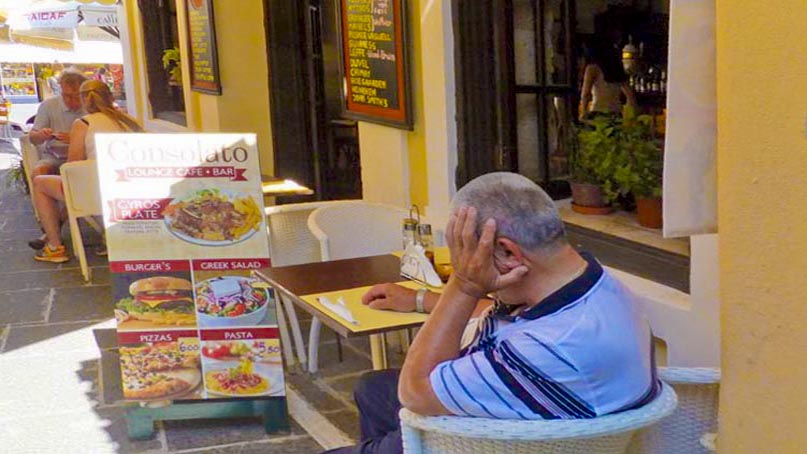
You’ve come here for a carefree week in the sun. But the newspaper headlines are five inches tall, there are long lineups at banks and store shelves are looking bare. And by the way, your hotel isn’t accepting credit cards and wants cash only.
It’s the situation in Greece this week, but it’s hardly the only place where a situation out of your control can turn a vacation into a survival exercise.
I’ve been in the middle of situations like this several times in my travel career, most painfully in a currency freeze imposed in Brazil in 1990 that was designed to stop hyperinflation. My wife and I arrived in Brazil on the evening before all the country’s banks were closed for an indefinite time and for the next 10 days we had to cope with whatever cash we’d brought with us.
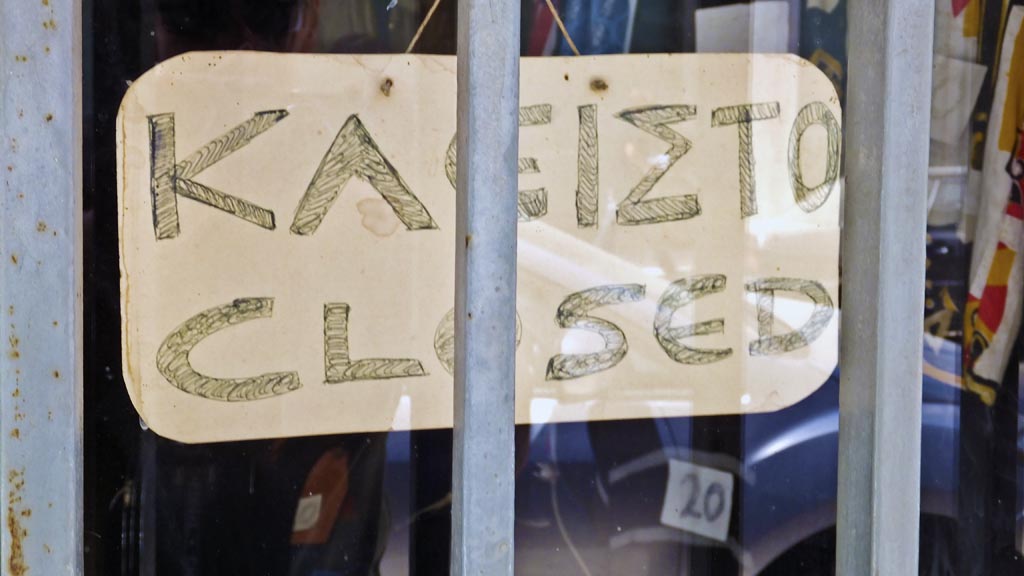
We learned how fear and greed can spike when there suddenly are no rules you can rely on. The uncertainly can be magnified if you’re a visitor trying to navigate a system you don’t understand.
We came through our experiences a little hungrier, but in the process learned some valuable lessons in coping with a chaotic situation. Here are some truths about safe travel no matter where you go:
1) Dump the Baseball Cap
Think twice about lugging a big camera or wearing a big pack on your fanny or a passport holder around your neck advertising the fact that you’re a tourist. Practice some key phrases in the local language.
It’s important not to draw attention to yourself as someone who might not only be carrying something valuable but could also not be paying full attention. And you’re in a better position to negotiate if you look like you’ve been here before and know your way around.
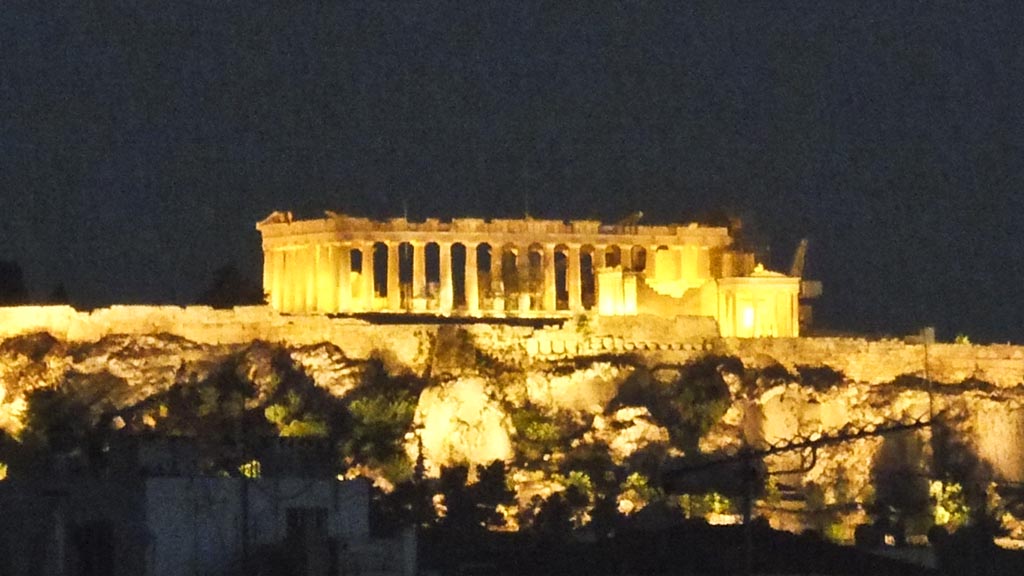
2) Guard Your Stash
With banks shuttered, ATMs have become the default source of money, but even with limits on withdrawals, they quickly run out of cash and as the Greek tragedy continues, there’s continuing uncertainty whether they will be replenished. You’ll want to come with a good supply of cash in small denominations.
How you carry large amounts of cash becomes its own issue. Hotels pretty much all have in-room safes, so you can at least cache most of the stash. A waist wallet or money belt is a reasonable investment.
Carry only what you need for the day someplace other than your purse or pocket. On the street, don’t flash any currency if you can help it. Keep your eyes open is always good advice, but especially now.
3) Leave the Loonies and Rubles at Home
No matter where you travel, nearly everyone knows the exchange rate for U.S. dollars or Euros against their local currency. Merchants and taxi drivers will generally happily accept them for cash payments. Not so with Canadian dollars, or to a lesser extent British pounds. Especially in a crisis, the last thing any merchant wants is to have money tied up in a currency that has to be exchanged at a bank that’s closed indefinitely.
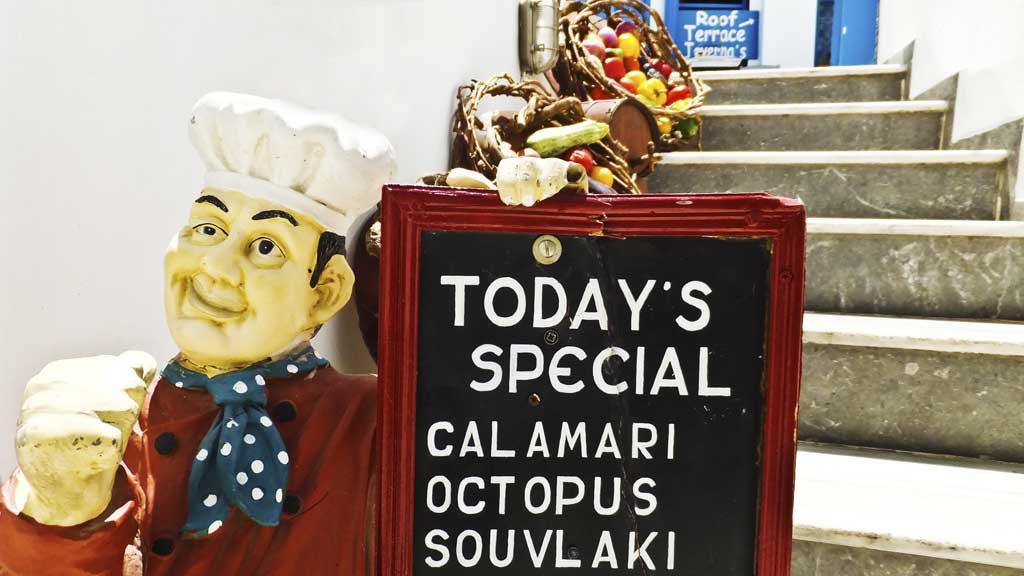
4) Get Everything in Writing
One of the surprises you run into in a bank holiday or in countries that have high inflation rates is that price lists can suddenly disappear or change without notice. In Brazil’s inflation, stores kept rate sheets under the counter and they changed morning and evening as inflation took its toll. Restaurant menus were written on chalk boards.
That made it easy to get greedy when news of the bank holiday hit. The fixed-price menu in my hotel in Rio de Janeiro was priced at $10 the night we arrived before the bank shutdown; the next morning the price on the chalk board had jumped to $50. Trying to get an advance on my credit card brought the response “We don’t know when the banks will open so we have to add a service charge for credit.” In Brazil, the add-on charges were generally more than double the original price.
It’s good practice to agree to every price in advance and write it down and get someone to sign off on it if possible. That even applies to taxi drivers and restaurants. A way around this is to prepay where possible.
But despite that, you could find yourself being bullied in to paying more.
Even when I had confirmation letters for prepaid hotel reservations that included the price of the room, when I arrived at the front desk there was always a frown as a clerk would say, “Senor, desculpe, we have no rooms at this rate. This must be a mistake.”
That’s where the written confirmation is vital. It’s a document that says the hotel agreed to that price. By insisting that I wanted to speak with the manager. I was always able to get the hotel to back down.

5) Hope for the Best, but Don’t Count on It
In Greece, the banks were supposed to re-open Tuesday. That turned out to be wishful thinking and customers were told to wait another week. Any one who’s sat through a “slight delay” at an airport knows that problems generally take longer than anyone would like to get straightened out.
6) Plot a Plan B
No matter how committed you are to travel to a place under economic stress, it’s always good practice to consider where you might bug out to if things start to fall apart quickly. Hoarding will be a response to a bank crisis and food or fuel are likely to become increasingly difficult to find. Stores shelves were cleaned out in Greece and that’s meant restaurants without access to fresh supplies have been closing early.
Buying a return flight with no penalty for a change is a wise investment when you’re going to any place with an iffy political or economic situation. However, as I learned in Brazil’s crisis, if things start to deteriorate fast, you’ll likely find that there are no options as all the outbound flights are booked solid by locals who are trying to flee the confusion as well. At least in the case of Greece, the country has neighbors who aren’t in turmoil and you could take a train, bus or ferry someplace else.
7) Consider This a Potential Opportunity
With fewer tourists eager to come to Greece for their holiday, there very likely will suddenly be sell-offs of resorts and hotels that want to stay open. These may not be advertised, but this could be a great time to shop around and even get hotels and package tour companies to add extras as incentives to come and stay.
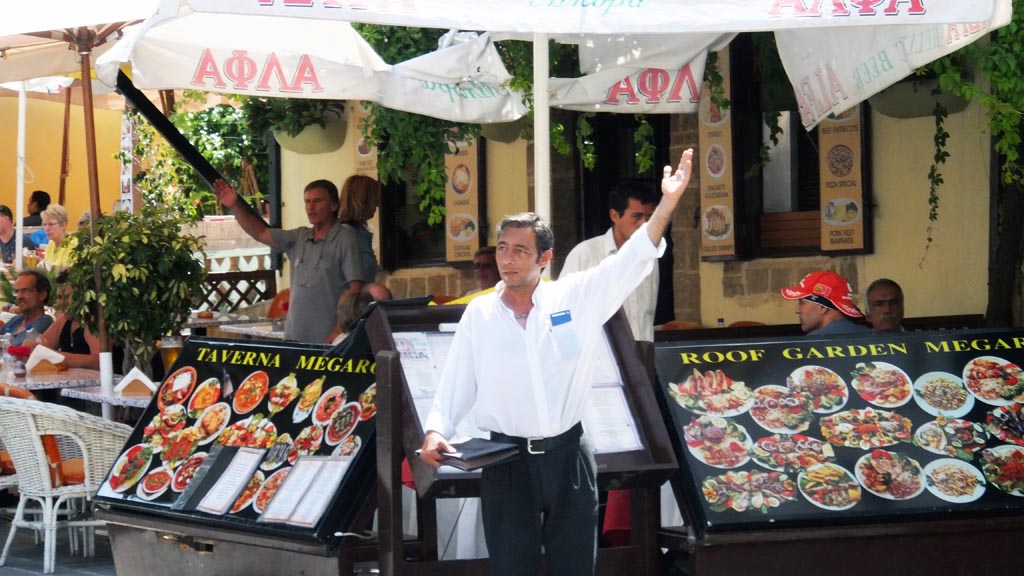
8) It’s Time to Play Hard Ball
Don’t be shy about playing let’s make a deal. For instance at restaurants, suggest to the owner you’ll have dinner there if wine is included. Any income for them will be better than an empty table at this point. If a hotel seems to be gouging, look for another that will appreciate your business and will give you more for less.
9) Book a Floating Hotel
Vacationing on a cruise gives you a cushion against the unforeseen anywhere you go. If there’s danger in the streets or even bad weather in a port, the ship can divert to another place. Most of your expenses are pre-paid and there’s no risk of suddenly not being able to pay with a credit card. ATMs and exchange at the purser’s office can keep you in cash if there aren’t any banks open ashore.
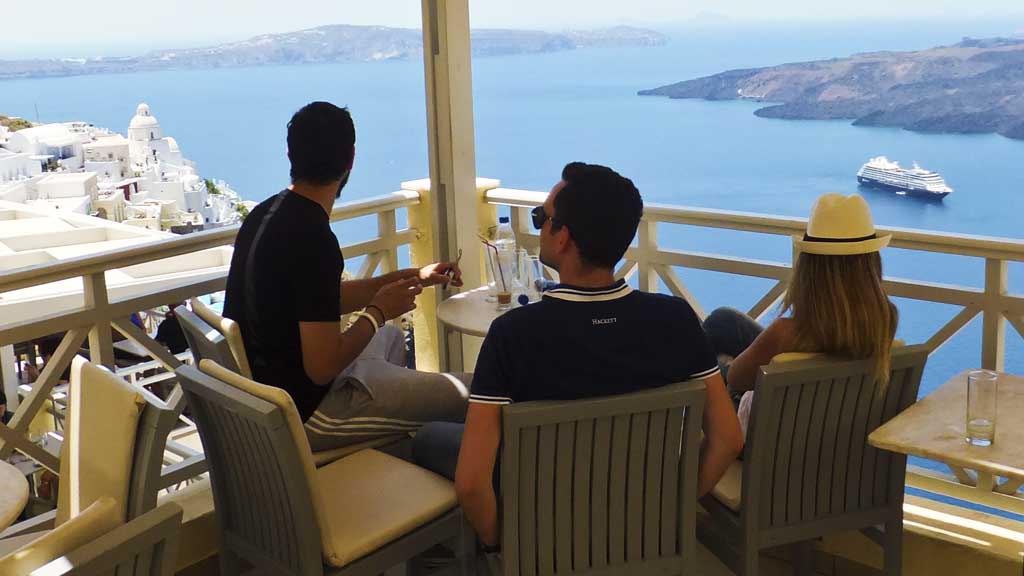
10) Don’t Panic
It may be difficult to not obsess about the worst possible scenarios when you’re stuck in the middle of a crisis, but the sun will shine again, the banks will re-open and a new form of business as usual will emerge.
Remember you’re part of history in the making. As long as there’s still cold beer and ouzo available, things are never as bad as they could be.
And when you get home safely, it will make for great stories to tell your friends.


